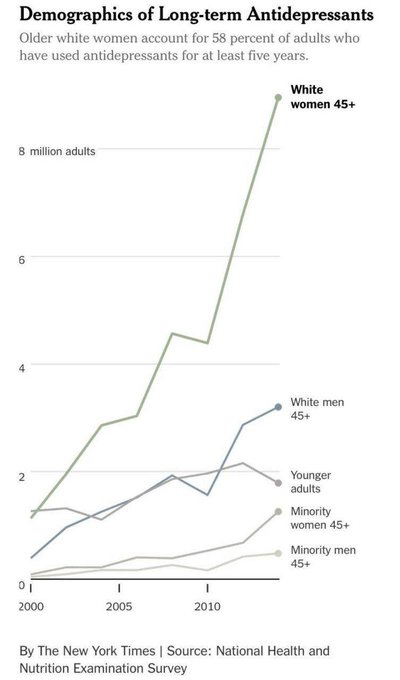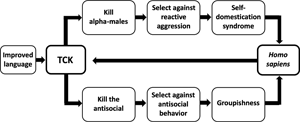Evidence that the most recent evolutionary phase of human self-domestication started with H. sapiens, whereas earlier Pleistocene Homo species showed no signs of a self-domestication syndrome, suggests that the period shortly before 300,000 years ago marked the beginnings of intensified selection against reactive aggression. Subsequent acceleration of gracilisation trends from archaic to modern H. sapiens suggests that self-domestication has continued to the present at an increasing rate. A critical question therefore is: what happened before 300,000 years ago that would explain why reactive aggression was selected against much more strongly than previously?
Based on Boehm's execution hypothesis, the answer might seem to be that this was the first time that human ancestors developed an ability to safely kill alpha males. While I will argue that this answer is correct, it is also inadequate because other species are also known to kill adults in their own group. The problem is particularly severe for chimpanzees because, according to Boehm (Reference Boehm2018 ), chimpanzees have a human-like capacity to remove a disliked despotic male by killing him. Boehm reported that in chimpanzees and humans 'bullies are singled out for lethal attacks' [by coalitions] (Boehm, Reference Boehm2018, p. 693). Therefore, 'It is very likely that our chimpanzee-like ape ancestors ganged up on disliked individuals to temporarily or permanently eliminate them from the group' (Boehm, Reference Boehm, Muller, Wrangham and Pilbeam2017, p. 763).
Those claims might be taken to suggest that there is no important difference between the propensities of chimpanzees and humans to kill an alpha male. Yet domineering behaviour is an invariable feature of alpha male chimpanzees, so it has not been reduced in that species as it has in humans. This suggested to Boehm (Reference Boehm, Muller, Wrangham and Pilbeam2017, p. 769) that there is a feature of human coalitions that makes them into 'a special, social selection force'. The critical question can therefore be reformulated: do differences in the nature of within-group killing of adults explain why, by 300,000 years ago, reactive aggression was selected against in humans but not in chimpanzees?




 Reply With Quote
Reply With Quote



